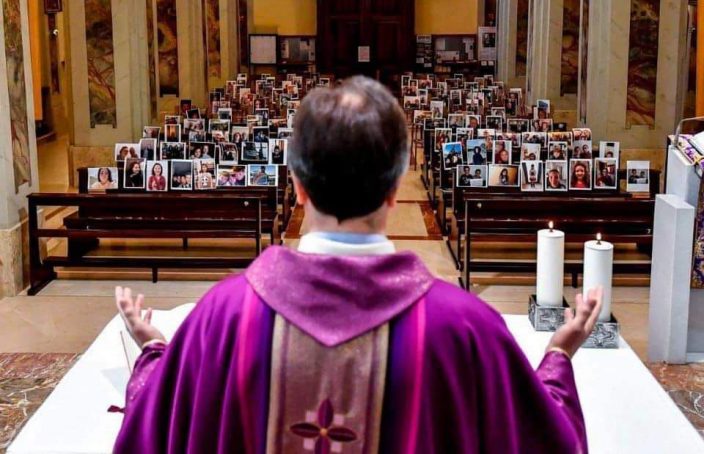And I Thought Lent Was Tough!
Lent, I would tell our parishioners, was supposed to be a slow, deliberate walk through the desert for forty days. We Catholics were expected to tone down our lifestyle: giving up gourmet meals, cutting down on meat, possibly doing without dessert, and making other little sacrifices in the spirit of the season. For me it was trying to do without the gin and tonic that I enjoyed in the evening. All for a good reason, of course, but that still didn’t make the days go by any faster. Lent was always an endurance test as we plodded along through the barren landscape.
Well, my friends, the season of Lent pales in comparison with the quarantine imposed on us now that the first cases of COVID-19 have been reported on Guam. Even as the virus was capturing the attention of the world, the tourist havens on the island were becoming unusually quiet. We could walk into what had once been a crowded restaurant and have the place pretty much to ourselves.
Now that the virus has been identified on Guam, we have gone into a major shutdown. All schools have been closed until further notice. Offices have been shut down, as I found out when I tried to register my auto. Later in the day I arrived at the outdoor basketball court just in time to find government workers posting a sign stating that the courts would be closed until further notice.
Meetings and social events of all sorts have been canceled. By government order, all gatherings of more than 50 people are forbidden until the threat is over, whenever that may be. We were instructed by the archbishop that no masses and other church services are to be held during the coming month. Isolation seems to be the order of the day on Guam.
Thus, quarantine is the approach adopted to protect against the kind of massive outbreak that we have seen in other places. This means a period of isolation for any who may have been exposed to the virus. In practice, the length of quarantine is 14 days–the incubation period of the virus. If it doesn’t show up by then, presumably you’re safe for the time being. But the quarantine can be extended just to make sure that a later outbreak doesn’t occur.
The word quarantine, by the way, is derived from the old Venetian for “forty”–the length of the isolation prescribed in the old days, I suppose. But this also happens to be the length of Lent, and the word is related to the Latin term for that season, Quadragesimo. Which brings me back to my original comparison of the two trying times.
Lent might have brought on hunger pangs or a thirst for something stronger than water, but the quarantine has left me more or less jobless: no masses, no office duty, no parish work. Even at my age, giving up work is much harder than the token offerings I usually make during Lent.
Lent might have been trying (that was its purpose, after all!), but it ended with bells ringing, choirs singing and the Easter celebration in full force. Not this year, though. The quarantine, now lengthened from 14 days to twice that, extends a week beyond Easter. For the first time in my life, there will be no Holy Week services and no Easter Vigil mass. Now that is a real sacrifice!






